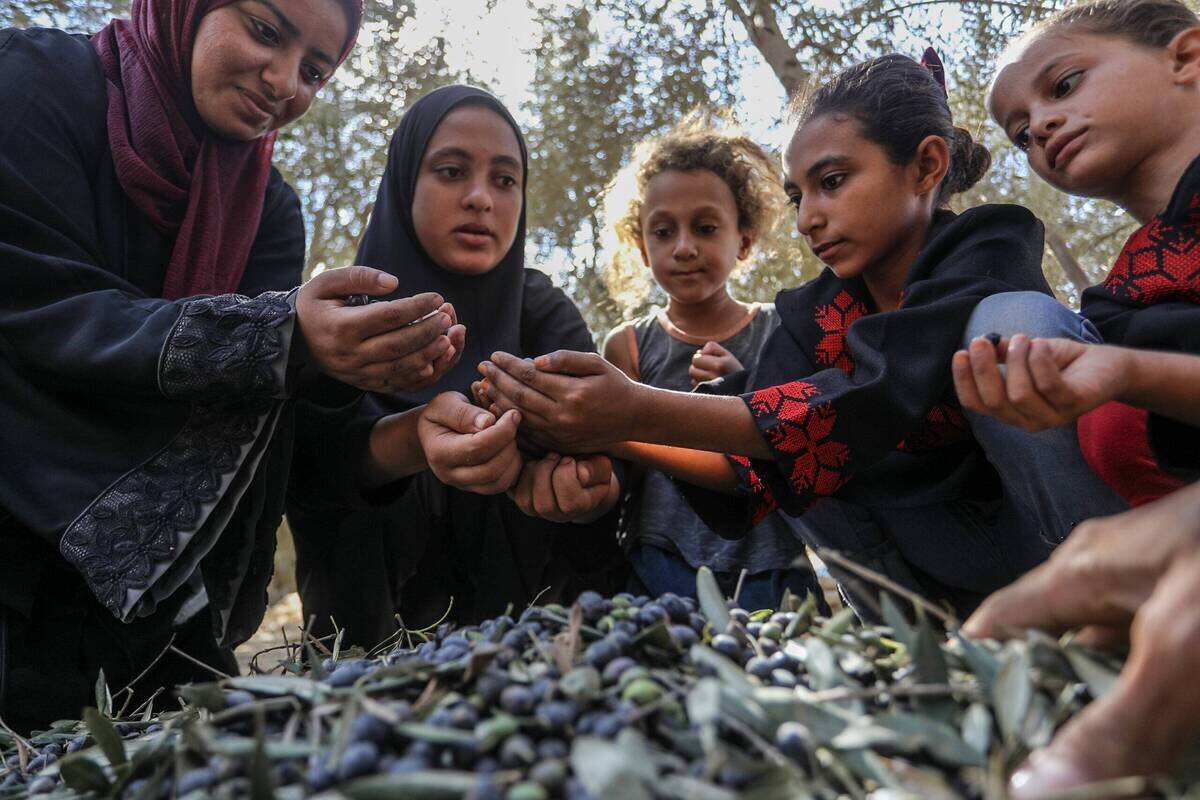Uprooting identity, uprooting peace: Israel’s war on the olive tree

ISLAMABAD - At dawn upon a West Bank hill, a Palestinian farmer stands still, watching in silence as Israeli bulldozers creep into his ancestral grove. The machines growl, their steel jaws sinking deep into the earth, tearing at the roots of olive trees his grandfather once planted with care. Each snap of a branch, each fall of a trunk, feels like a page torn from his family’s history.
In Palestine, olive trees play an essential part in family life, poetry and faith. These olive groves unite generations with the land beyond mere crops or oil production. Fruit from Palestinian trees have sustained homes, wood from them has warmed homes, and harvests from them have marked seasons of joy and resilience. Their fruit serves as a symbol of steadfastness, refusing to be uprooted from where one stands firmly rooted.
Human rights groups estimate that since 1967 over 800,000 olive trees have been uprooted from their soil across occupied territories as though they were enemies in war. The UN Office for Coordination of Humanitarian Affairs has noted an upsurge in this practice during periods of settlement expansion, turning once-green hillsides to dust. When families return home, they find stumps where once stood an entire orchard.
Olive farming supports nearly 80,000 Palestinian families and represents up to 15% of agricultural income, as reported by the Food and Agriculture Organization. The loss is both symbolic and tangible. Destroying olive groves is not simply an attack on culture; it is an attack on survival as well.
According to UN agencies and the Gaza Ministry of Agriculture, nearly three quarters of Gaza's olive trees have been lost since the war started in October 2023. Independent satellite analysis confirms vast orchards being reduced to barren ground, prompting FAO warnings about food production collapsing in Gaza and leaving its population on the verge of starvation; dependence is almost exclusively on aid for survival.
When generations-old trees that supported and employed millions are deliberately destroyed without military justification or as collective punishment, it cannot simply be dismissed as mere necessity.
International law is very clear. The Fourth Geneva Convention prohibits wanton destruction of civilian property, while Rome Statute of International Criminal Court recognizes starvation warfare as a war crime. UN Human Rights Council has raised their concern that targeting agriculture in Palestine violates humanitarian law; olive trees do not threaten soldiers or settlements but provide life-giving oxygen; their uprooting is seen as part of dominating, cutting the link between people and soil.
There's an ironic sense here. For centuries across cultures and religions, olive branches have come to symbolize peace. From biblical passages and Quranic verses to ancient traditions and even the UN emblem, to extend an olive branch has always meant reconciliation - yet in Palestine as bulldozers tear these branches from their soil, witnessing not an extension but an uprooting. Every destroyed tree represents broken olive branches; every destroyed stump offers yet more opportunities for dialogue that no longer can take root and foster reconciliation.
Tragic events are compounded by silence while orchard destruction rarely makes headlines internationally, and Palestinian journalists who attempt to document its destruction often pay with their lives. The Committee to Protect Journalists has called Gaza one of the deadliest conflicts ever for journalists since October 2023 with over 190 reporters killed since then. International media are barred from entering and local voices are muzzled therefore the destruction of trees becomes an invisible war on identity that risks being forgotten about altogether by many parts of the world.
Even within the West there are voices of conscience. Historian Ilan Pappe has condemned uprooting trees as an act of intentional erasure while scholars such as Rashid Khalidi and Noam Chomsky have asserted that making Palestinian life impossible is part of an elaborate colonial scheme, echoing Palestinian farmers themselves who claim destruction of trees is more than an economic loss, it robs them of identity and hope.
Yet this tale doesn't end in despair. Farmers in fields ravaged by bulldozers planted again, families held onto what few trees remained and harvested whatever fruit they could. "Olive trees are like us," said one farmer, "resilient, with deep roots in this land." Even when cut down, these resilient trees quickly regenerate from their stumps - embodying the resilience and spirit of Palestine itself.
That spirit poses a formidable challenge to the international community. If peace truly is what they desire, then international bodies must defend not only Palestinian rights but also olive trees as symbols of reconciliation between all humans. Bulldozers cannot provide security or peace. Allowing destruction of olive trees means accepting destruction of an integral element of coexistence itself.
The farmer who watched his grandfather’s olive grove crumble knows this truth all too well. The olive trees were his memory and his hope, and their loss represents not only personal grief but also a warning to us all: when olive trees fall, peace is lost as well. Unless action is taken, the branches that could have extended peace will one day lie broken in the dust.
Muhammad Akmal Khan is a Pakistani journalist and foreign affairs analyst.
Leave a Comment